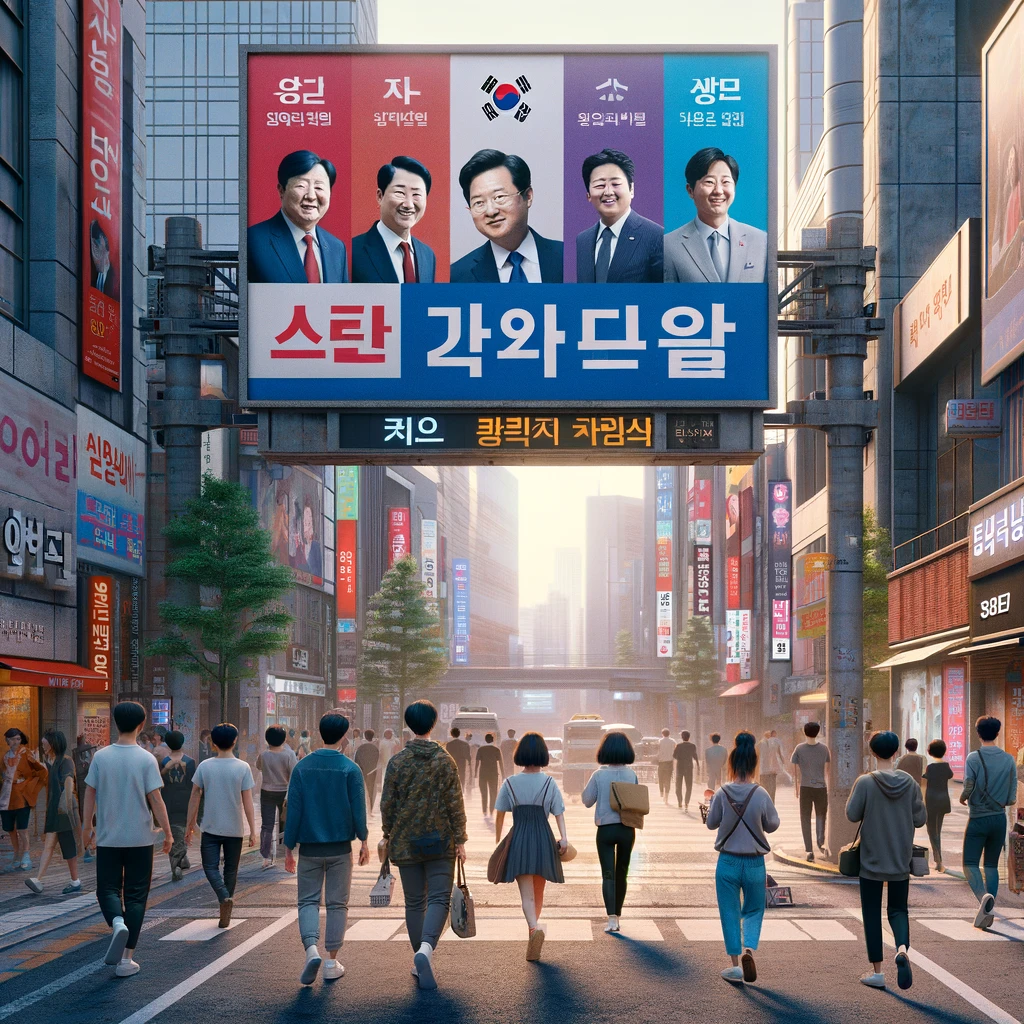Rising Political Indifference: A Warning Signal
As the April 10th general elections in South Korea approach, a worrying trend has emerged: a significant portion of the younger demographic is showing an increasing disinterest in politics. This detachment mirrors concerns similar to those observed in Japan, where youth voter turnout has alarmingly dipped to 30%, only half of the overall participation rate.
A Deep Dive into the 2030s’ Political Disengagement
Recent reports highlight a stark decrease in news portal engagement, indicating a broader trend of political apathy among South Korea’s younger citizens. Factors contributing to this phenomenon include intense partisan politics, a perceived lack of genuine alternatives, and escalating political disputes, further alienating the youth and reducing their news consumption.
Google Trends analysis corroborates this disinterest, showing a significant decline in news-related searches over the past five years. Similarly, web traffic analytics reflect a downward trajectory in portal usage, particularly during the election season, underscoring the extent of young voters’ disengagement.
The Swing or Abstain Dilemma
Central Election Management Committee surveys reveal a concerning trend: a considerable segment of the 2030 voters remains undecided, casting uncertainty on whether they will swing the vote or choose to abstain. This indecision is notable against a backdrop of general voter disillusionment with the political landscape, exacerbated by the polarizing nature of current political discourse and controversial remarks from key political figures.
Implications for Democracy and Governance
The current climate of political apathy among South Korea’s youth presents a significant challenge to the vitality of its democratic processes. The phenomenon of “silver democracy” in Japan serves as a cautionary tale, highlighting the potential long-term consequences of neglecting the political engagement of younger generations.

Professor Shin Yul of Myongji University emphasizes the pivotal role of the 2030s in shaping future elections, suggesting that increased participation from this demographic could lead to a more responsive and sensitive political environment.
Towards a Revitalized Political Engagement
To counter this trend of political indifference, it is imperative for South Korea to foster a political environment that actively engages and resonates with the younger demographic. This includes promoting transparency, addressing the genuine concerns of the youth, and ensuring that political discourse is both relevant and accessible to all.
Conclusion: A Call to Action for the 2030s
The decreasing interest in politics among South Korea’s younger generations is a wake-up call for both political leaders and citizens alike. It is a crucial moment to reassess and rejuvenate the approach to political engagement, emphasizing the importance of participation in shaping the future of democracy in South Korea.
As the upcoming elections draw near, the choice made by the 2030 voters will not only determine the immediate political landscape but also set the tone for the country’s democratic vitality in the years to come. It is a pivotal opportunity for South Korea’s youth to make their voices heard and contribute to a more inclusive, responsive, and forward-looking democratic process.
Korea’s Leap into Space: The Launch of the First Mass-Produced Small Cluster Satellite
Hi, I’m [jeybee]. As a long-time resident of Seoul, I’m passionate about uncovering the authentic, everyday magic of Korea. This blog is my way of sharing my favorite spots, tips, and cultural insights with you, beyond the usual tourist traps.

